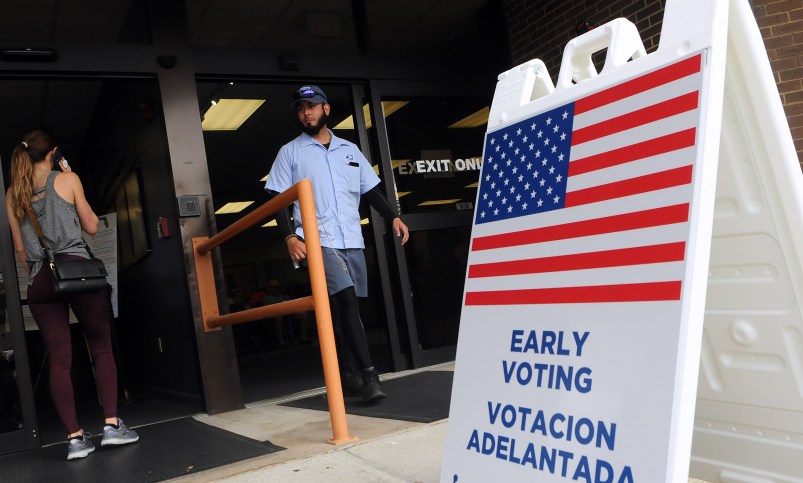Early voting in the 2020 general election started in Minnesota, Virginia, South Dakota and Wyoming on Friday, while the sending of ballots to overseas voters also began last week. This means the clock is ticking for resolutions in the various legal battles over how voting will work this year. Last week brought several major developments:
- The Pennsylvania Supreme Court handed down an opinion that was a big win for Democrats who had turned to state court to head-off a GOP federal lawsuit targeting ballot drop boxes and other aspects of the voting process. The judge in the federal case has been waiting for a resolution from the state court litigation before moving forward with the GOP lawsuit.
- A federal court in Chicago turned down a request by the local Republican Party that he block Illinois’ new law expanding voting for the pandemic.
- New York agreed to give voters an opportunity to fix defects on their absentee ballots as part of litigation that was brought there.
- A state court in Michigan said that ballots received up to 14 days after the election — as long as they’re postmarked by Nov. 2 — can be counted this year.
- A Michigan court also overturned the state’s longstanding ban on the hiring of transportation to bring voters to the polls.
- An Ohio state court blocked its top election official’s ban on ballot drop boxes being set up outside county election offices. The decision is being appealed and the judge’s order is currently on hold.
- A federal judge in Louisiana ordered that the state expand its options for absentee voting for November’s election, though that decision is likely to be appealed.
Even though many of the big cases in the voting rights landscape are heading towards resolution, a few new lawsuits are still being filed. In Missouri, voting rights groups are challenging its limits on who can submit absentee ballots in person, and Mississippi faces a lawsuit for its refusal to expand vote-by-mail.
RBG’s Death Adds Extra Chaos To Election Disputes: As I wrote on Friday evening after Justice Ruth Bader Ginsburg died of pancreatic cancer, her death shifts the dynamics around whatever big election law disputes still to come this cycle, including any Bush v. Gore-like cases that emerge after votes are cast. So far most of the emergency voting rights decisions the court has had to make during the pandemic have been resolved by the conservative justices sticking together to keep in place the voting restrictions that lower courts have struck down. So Ginsburg’s death doesn’t change that trend. But it could prove pivotal in any post-election disputes where Chief Justice John Roberts may have been inclined to swing to the liberals, given his interest in maintaining perceptions of the court’s legitimacy. If Trump can seat his nominee to replace Ginsburg before the election, such a Roberts swing will no long be decisive.
S.C. Lawmakers Approves No-Excuse Absentee Voting: A measure to remove South Carolina’s excuse requirement for absentee voting became law Wednesday, though proposals to remove the absentee voting witness requirement were shot down by the legislature. Now that South Carolina has opened up mail-in voting, only five states — Texas, Indiana, Louisiana, Mississippi and Tennessee — are still resisting letting anyone vote absentee for the pandemic.
A No Good, Very Bad Week For USPS: Concerns about how the U.S. Postal Service was approaching the various vote-by-mail issues arising this year took new forms. The week started with election officials in several states angered by mailers USPS was sending nationwide with general vote-by-mail advice — advice that ran afoul of the specific policies of certain state. A federal judge in Colorado has already blocked USPS from sending out any more of the mailers. The week ended with a federal judge in Washington blocking the broader operational changes that Trump-aligned Postmaster General Louis DeJoy implemented this summer. The judge said that “at the heart of DeJoy’s and the Postal Service’s actions is voter disenfranchisement.”
Legal Fight Exposes Census Bureau Concerns About Rushed 2020 Count: Several internal Census Bureau records from the lead-up to and right after the decision to expedite the decennial census count were made public in the legal fight over whether that decision should be blocked by a court. The records show that in the days before Commerce Secretary Wilbur Ross ordered the Bureau to figure out a truncated scheduled, Census officials were warning that a sped-up schedule would pose severe risks to the survey’s accuracy.






